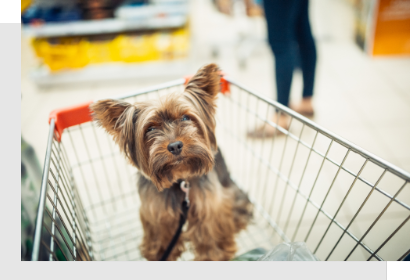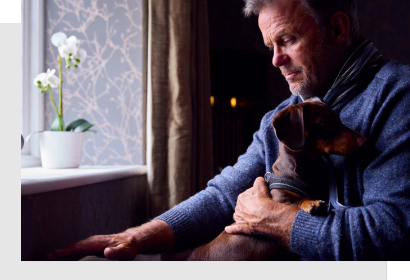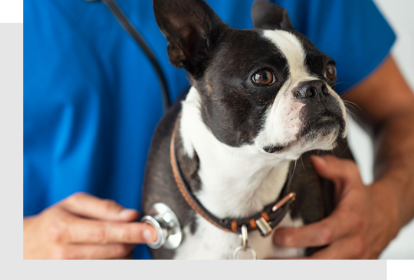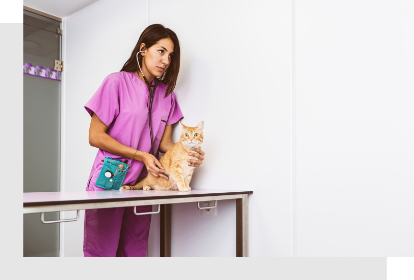Harsh times ahead: The Covid-19 impact on the veterinary industry
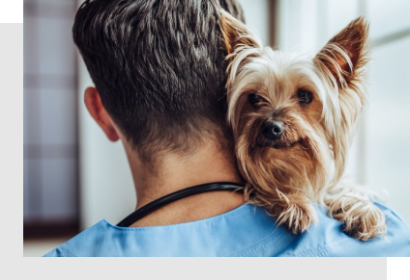
First, we thank our panel of vets in these seven countries for continuing to share their thoughts with us during this difficult time. We also would like to thank our clients, and other veterinary industry companies, for their interest and support in this research; we hope the insights help you provide support as this crisis continues to unfold.
A mere 2 weeks after our initial wave and the picture has changed considerably. In the first wave, Italy stood out as by far the most impacted country. Since then the playing field has levelled, and there are few signs that some things are improving or, at the very least, not getting worse.
So, what are the key take outs from wave 2?
Personal and professional concern is on the rise
Back in mid-March professional concern was much higher than personal concern, now that gap has narrowed. Vets are now nearly as concerned for their own personal safety as they are for the safety of their practices. The biggest increases have been seen in the US and Australia; in mid-March just over a third were quite or extremely concerned from a personal perspective; this has now increased to 7 in 10 in the US and 6 in 10 in Australia.
Italy and Spain remain at a similar level of both professional and personal concern as in wave 1, when veterinarians were already highly affected by Coronavirus.
Since last wave we have also seen significant increases in cases of and mortalities from Covid-19 in both the UK and France, which is reflected in heightened levels of concern among vets.
With an increasing number of cases, yet a significantly lower mortality rate, German vets reported lower levels of both professional and personal concern than any other country surveyed.
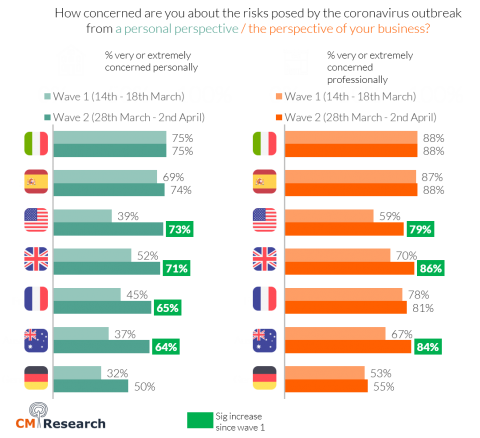
The impact on revenue for veterinary practices is stark
Over 50% of vets reported a dip in revenue intake when asked how their revenue has changed in the past week across Italy, the UK, France and Spain. Germany, US and Australia also report declines but at a much lower level. This drop in revenue is highly linked to a similar drop in the number of clients visiting the practice.
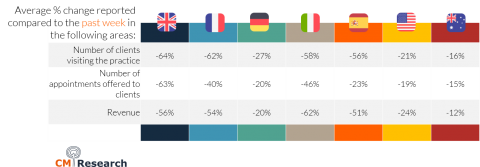
Veterinarian’s toughen precautions to limit contact with patients
Back in mid-March the common new policy in most practices was “additional policies around personal hygiene”. This has now changed to asking pet owners to phone in rather than come in, or limiting to only emergency appointments.
If we take the UK as an example; over 8 in 10 veterinary practices report only allowing emergency cases, increasing from just 1 in 10 a fortnight ago. Protective equipment is now commonplace in practices, up from 7% to now 60%.
59% of veterinarians now report staff on sick leave due to Covid-19, compared to just 11% a couple of weeks back. Whilst this is not surprising, it is an indication of just how rapidly the virus is spreading.
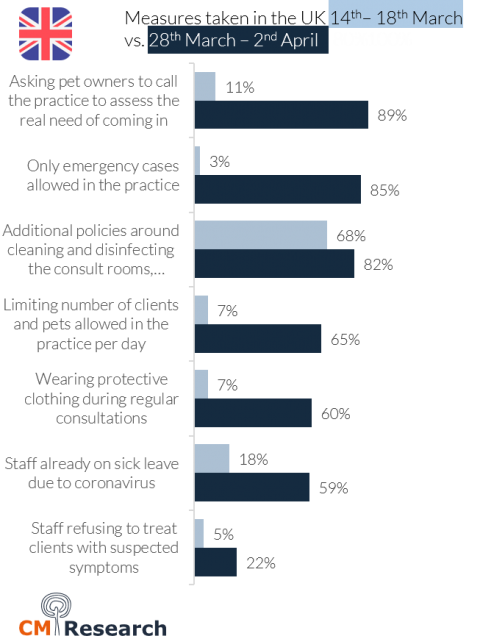
What can be done to support veterinarians?
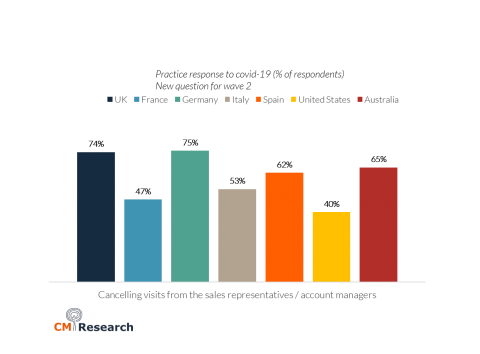
Many veterinary practices are cancelling all face-to-face visits from sales reps. This is at a particularly high level in the UK and Germany, but we can expect to see this increase in other countries, especially the US, in the coming weeks.
So, with declining face to face contact what can you do to support the industry?
1. Support transition to online channels
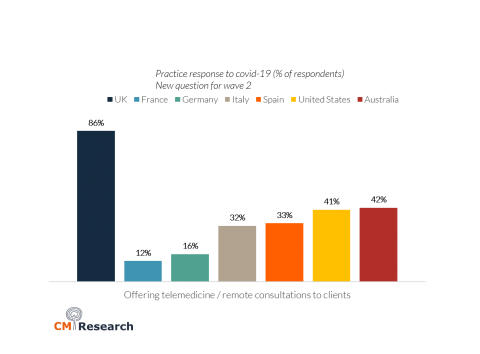
Teleconsults are now becoming more popular, especially in the UK. Companies and manufacturers who are able to use alternative channels should do their utmost to enable clinics to shift to this new technology as smoothly as possible.
1. Be transparent about stock and flexible on payment terms
Now that countries are taking tougher measures that are significantly impacting on the day to day running of clinics, there are now higher expectations on manufactures. The majority of veterinarians are still looking for advice and updates on stock availability, but price caps and increased payment flexibility are now much more broadly expected.
2. Continue to be the trusted source of knowledge
In more positive news, as we see satisfaction with advice given by governments decline, veterinarians are rating the advice and guidance they are getting from national veterinary associations more positively than in the first wave of the tracker.
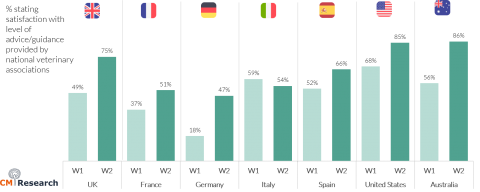
Closing thoughts
Veterinarians may not be treating Covid-19, but they are very much on the front line keeping our pets healthy. As more and more of us are confined to our houses, those of us who have pets to look after are lucky. The positive impact of having a cat or dog on our mental health has been proved time and time again. We need our furry friends now more than ever, and must not forget the job that veterinarians do, in times of crisis and always.
The full report is available for free to our Vetspanel members. Once logged in to your account you can find it in our Resources section.
Not a member yet? Join Vetspanel today to receive access to this report and more.
Related Blogs
October 20, 2022
The cost-of-living crisis and its impact on veterinary practice. PART I
0 Comments4 Minutes
January 23, 2022
COVID-19 Global Pandemic impact on the veterinary market. VetsSurvey 2020 – Part 1
0 Comments1 Minutes
October 21, 2021
Veterinary nurses overlooked as petition calls for better understanding
0 Comments4 Minutes

